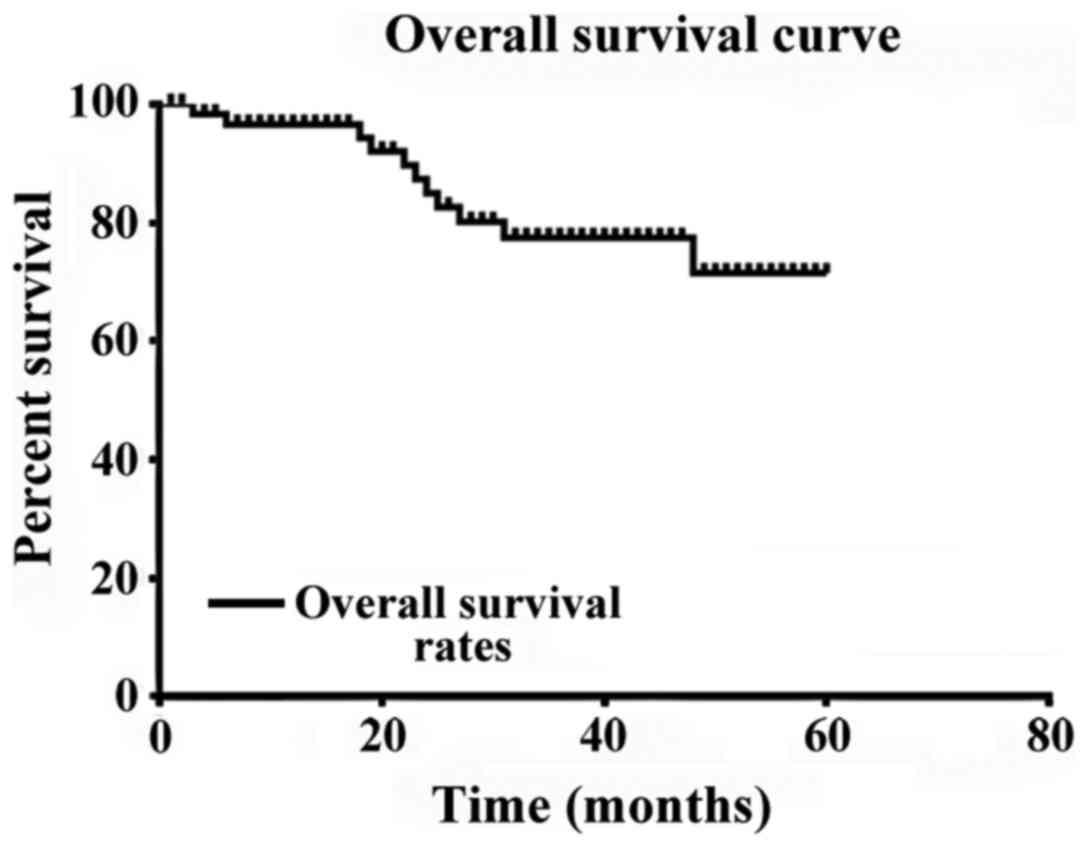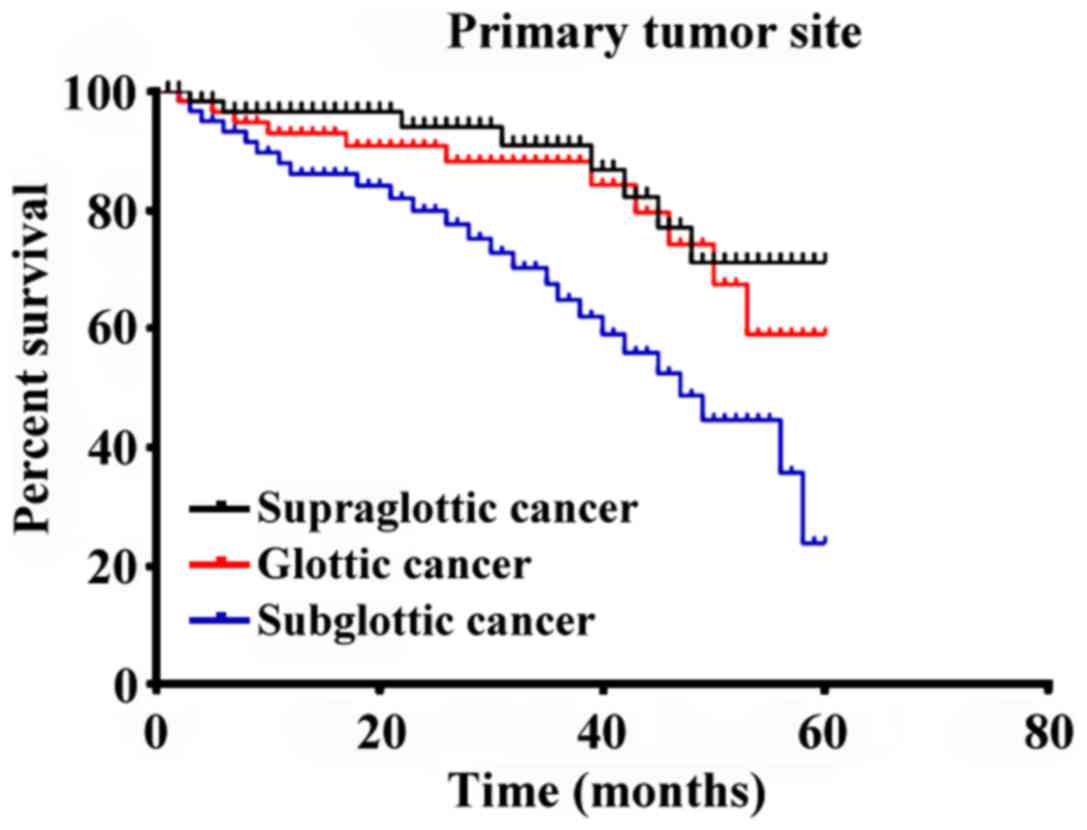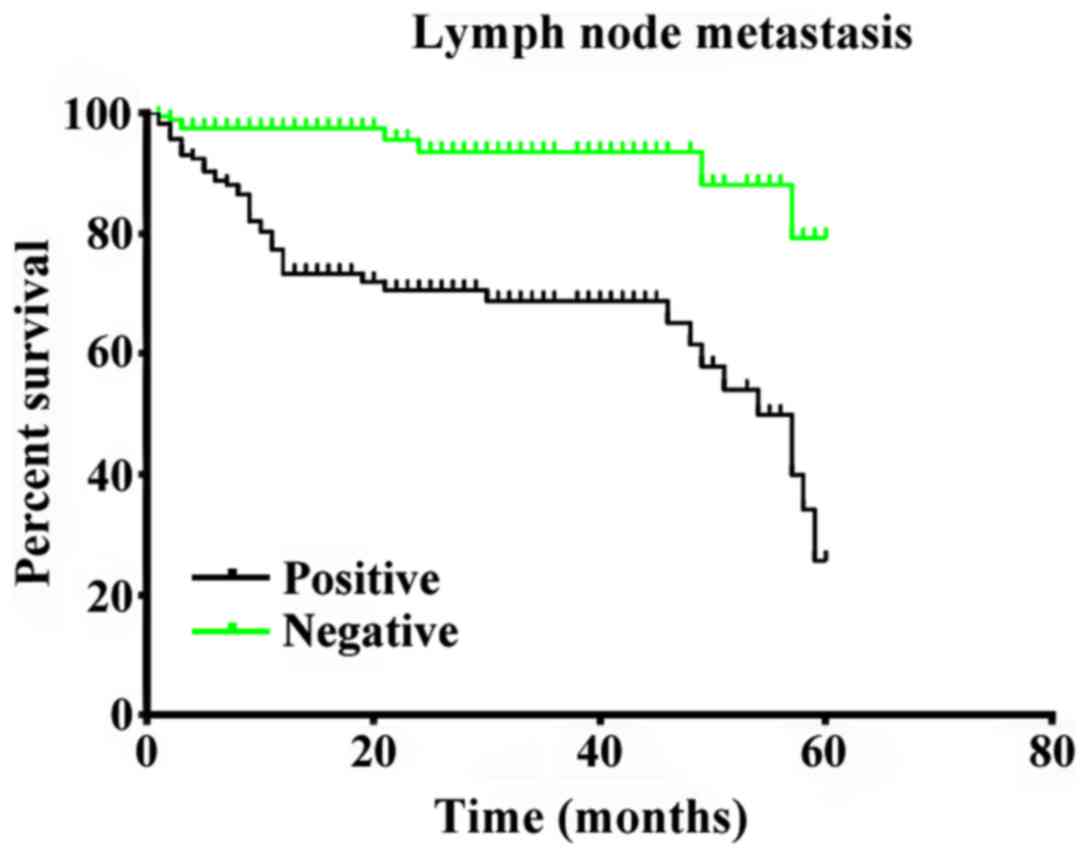|
1
|
Yu X and Li Z: The role of microRNAs
expression in laryngeal cancer. Oncotarget. 6:23297–23305. 2015.
View Article : Google Scholar : PubMed/NCBI
|
|
2
|
Du L, Li H, Zhu C, Zheng R, Zhang S and
Chen W: Incidence and mortality of laryngeal cancer in China, 2011.
Chin J Cancer Res. 27:52–58. 2015.PubMed/NCBI
|
|
3
|
Li X, Wang H, Lu X and Di B: STAT3
blockade with shRNA enhances radiosensitivity in Hep-2 human
laryngeal squamous carcinoma cells. Oncol Rep. 23:345–353.
2010.PubMed/NCBI
|
|
4
|
Kim JS, Chang JW, Park JK and Hwang SG:
Increased aldehyde reductase expression mediates acquired
radioresistance of laryngeal cancer cells via modulating p53.
Cancer Biol Ther. 13:638–646. 2012. View Article : Google Scholar : PubMed/NCBI
|
|
5
|
Min JW, Kim KI, Kim HA, Kim EK, Noh WC,
Jeon HB, Cho DH, Oh JS, Park IC, Hwang SG, et al: INPP4B-mediated
tumor resistance is associated with modulation of glucose
metabolism via hexokinase 2 regulation in laryngeal cancer cells.
Biochem Biophys Res Commun. 440:137–142. 2013. View Article : Google Scholar : PubMed/NCBI
|
|
6
|
Oancea AL, Popescu CR and Bordei P:
Anatomo-surgical correlations in larynx cancer. J Med Life.
5:198–202. 2012.PubMed/NCBI
|
|
7
|
Swisher-McClure S, Mitra N, Lin A, Ahn P,
Wan F, O'Malley B, Weinstein GS and Bekelman JE: Risk of fatal
cerebrovascular accidents after external beam radiation therapy for
early-stage glottic laryngeal cancer. Head Neck. 36:611–616. 2014.
View Article : Google Scholar : PubMed/NCBI
|
|
8
|
Guo W, Yang D, Xu H, Zhang Y, Huang J,
Yang Z, Chen X and Huang Z: Mutations in the D-loop region and
increased copy number of mitochondrial DNA in human laryngeal
squamous cell carcinoma. Mol Biol Rep. 40:13–20. 2013. View Article : Google Scholar : PubMed/NCBI
|
|
9
|
He FY, Liu HJ, Guo Q and Sheng JL: Reduced
miR-300 expression predicts poor prognosis in patients with
laryngeal squamous cell carcinoma. Eur Rev Med Pharmacol Sci.
21:760–764. 2017.PubMed/NCBI
|
|
10
|
Kim JS, Kim SY, Lee M, Kim SH, Kim SM and
Kim EJ: Radioresistance in a human laryngeal squamous cell
carcinoma cell line is associated with DNA methylation changes and
topoisomerase II α. Cancer Biol Ther. 16:558–566. 2015. View Article : Google Scholar : PubMed/NCBI
|
|
11
|
de Miguel-Luken MJ, Chaves-Conde M and
Carnero A: A genetic view of laryngeal cancer heterogeneity. Cell
Cycle. 15:1202–1212. 2016. View Article : Google Scholar : PubMed/NCBI
|
|
12
|
de Miguel-Luken MJ, Chaves-Conde M, de
Miguel-Luken V, Muñoz-Galván S, López-Guerra JL, Mateos JC, Pachón
J, Chinchón D, Suarez V and Carnero A: MAP17 (PDZKIP1) as a novel
prognostic biomarker for laryngeal cancer. Oncotarget.
6:12625–12636. 2015. View Article : Google Scholar : PubMed/NCBI
|
|
13
|
Han CD and Ge WS: Up-regulation of
angiotensin-converting enzyme (ace) enhances cell proliferation and
predicts poor prognosis in laryngeal cancer. Med Sci Monit.
22:4132–4138. 2016. View Article : Google Scholar : PubMed/NCBI
|
|
14
|
Liu RR, Li MD, Li T, Tan Y, Zhang M and
Chen JC: Matrix metalloproteinase 2 (MMP2) protein expression and
laryngeal cancer prognosis: A meta analysis. Int J Clin Exp Med.
8:2261–2266. 2015.PubMed/NCBI
|
|
15
|
Zhang C, Guan Z and Peng J: The
correlation between stanniocalcin 2 expression and prognosis in
laryngeal squamous cell cancer. Lin Chung Er Bi Yan Hou Tou Jing
Wai Ke Za Zhi. 29:102–107. 2015.(In Chinese). PubMed/NCBI
|
|
16
|
Choe MH, Min JW, Jeon HB, Cho DH, Oh JS,
Lee HG, Hwang SG, An S, Han YH and Kim JS: ERp57 modulates STAT3
activity in radioresistant laryngeal cancer cells and serves as a
prognostic marker for laryngeal cancer. Oncotarget. 6:2654–2666.
2015. View Article : Google Scholar : PubMed/NCBI
|
|
17
|
Jin T, Li PJ, Chen XZ and Hu WH: ABO blood
group is a predictor of survival in patients with laryngeal cancer.
Chin J Cancer. 35:902016. View Article : Google Scholar : PubMed/NCBI
|
|
18
|
Dang S, Qu Y, Wei J, Shao Y, Yang Q, Ji M,
Shi B and Hou P: Low copy number of mitochondrial DNA (mtDNA)
predicts worse prognosis in early-stage laryngeal cancer patients.
Diagn Pathol. 9:282014. View Article : Google Scholar : PubMed/NCBI
|

















